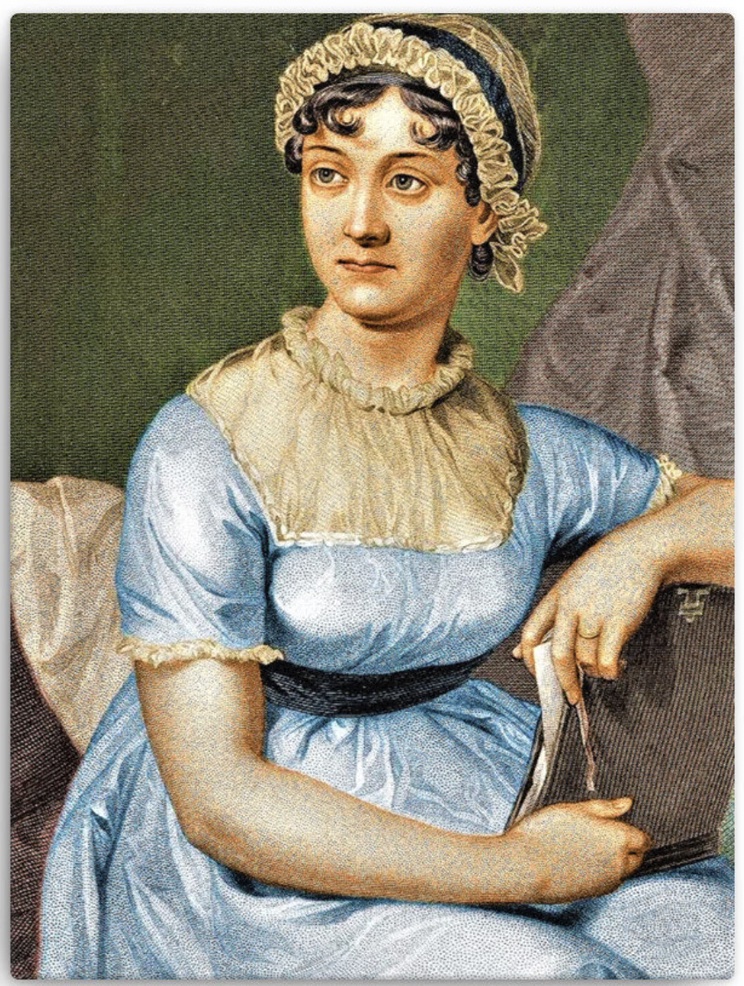The Most Important Thing I Learned in 2020 is to Love Jane Austen

In December 2019, a little more than a year ago, I read Pride & Prejudice for the first time. I had managed to avoid Jane Austen until I was 41, counting her among the many dead white writers who’d gotten plenty of attention and surely didn’t need mine. I believed Austen would be outdated, stiff, and boring; her work struck me as something one had to read, not something one chose to read. This was, of course, based on no actual facts aside from it being written in the 18th-19th century and being read by the snooty English Lit majors, who prided themselves on reading only the “classics” (as opposed to the pretentious English Writing majors, like me, who prided ourselves on reading only the most contemporary poets).
It was not an informed decision that I made—avoiding Jane Austen. Nor was it a respectable literary source that compelled me to check her out. Oh, no no no. Ultimately, it was the movie After—and its bazillion obsequious references to Austen and the Brontë’s—that piqued by interest. I am admitting this because:
- 1) I was raised with the misguided notion that anything other than brutal honesty is deceit;
- 2) I believe in honoring inspiration—even if inspiration comes in the form of a trashy Netflix romance; and
- 3) it’s important to acknowledge and admit mistakes. And avoiding Jane Austen for so long was definitely a mistake. (So was watching After as many times as I did, but I’ll leave that for another post.)
Fortunately, I found Jane at just the right time. I’m not sure I’d have made it through 2020 without her. First, I’ll begin at the end: all Austen novels have happy endings. It’s not a spoiler; it’s a reliable comfort. In a year of pandemic, quarantine, social distancing, political unrest, police brutality (again), protests, and Zoom-based everything, it was a relief to know that no matter what happened, the girl would get her guy and they would be radiantly happy.
But it’s not just that. Honestly, that would never have been enough to carry me through all six novels (some of them twice) in a single year. What really hooked me is Jane Austen’s humor, insight, and cultural criticism—through the lens of romance, manners, and domestic life. She knows that the people in her worlds are judgmental, obnoxious, shallow, classist, and snobby. She knows that others are too naïve, too demure, too timid. I’m confident she even knows that the ideals of marriage, wealth, property, and comfort that her heroines achieve are all total bullshit.
She’s like:
"I get it; these people are all assholes, except for this one, and maybe this one, and this one is annoying but maybe more tolerable than the rest."
And then she’s like:
"I also know this whole system is fucked and unfair, but it’s all I’ve got to work with, and at least my ladies get theirs."
And I’m like:
Damn right! This gal knows what’s what.
Then I sip some merlot, and revel in feeling refined and sophisticated, while subtly undermining the patriarchy—or at least manipulating it.
From what I can tell, however, my reading of Jane Austen is not the one most commonly celebrated. In fact, it seems there’s a whole world of Austen fandom out there that I may never understand. (Four words: Mr. Darcy fan fiction.) And it strikes me that this Darcy lust, and the fervor for happy endings, or the belief that Austen’s novels are love talismans (eg: Jane Austen Book Club), feed into the idea (like I once had) that Austen is simply the O.G. of chick lit.
But, then I ask myself: What does that even mean? Chick lit? And “simply”? “Simply” the foundational source and inspiration for some of the best-selling, most beloved modern novels? And, beyond that, why should it matter why books are important to people, or which people they are important to, especially if they keep being important for hundreds of years?
I know that I have avoided certain books—books by women, for women, about women—because some voice somewhere said they were lesser. Less literary, less important, less worthy. It took me too long to realize that voice—that’s misogyny. And that’s what Jane Austen was writing against—with every word of every book, avowing the importance of women’s lives and experiences, in a time when we were still considered property.
So, F— that noise about chick lit or women’s fiction or whatever. F— the idea that for something to be unqualified, capital L, literature it needs to “appeal” to men. Also, F— the idea that feminism can’t include handsome men and marriages and happy endings. Because Jane Austen is a literary icon and feminist icon and an all-around bad ass. Period. And if that’s all I learned in the godforsaken hellscape of 2020, then that’s enough.